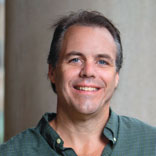The Pulteney StreetSurvey

SERVICE. LEARNING. ACTION.
Poverty, food insecurity, access to healthcare, education, water and housing, sustainability and climate change — the problems facing communities are persistent, but civic engagement and service learning doesn’t shy away from them; it puts them front and center with a sense of urgency and challenges students to ask: “How do I apply the knowledge and skills I am learning throughout my college journey to make a difference in the world right now?”
Two decades ago, service learning might have looked like a trend, but we’ve seen how experiences outside the classroom help students engage much more deeply in the concepts and theories they’re studying, because they can see them play out — they can literally test whether those theories make sense. So even though we’re working with difficult problems, the learning is deep and potentially transformative, for students and the communities they collaborate with. It opens up a space for questioning our assumptions about teaching, learning and research, about what it means not only for an individual to be a global citizen, but for a college or university to be a global citizen. It helps students — and faculty, administrators and staff engaging with communities — understand what it means to work across differences. Especially with today’s division and polarization, the benefit of civically engaged service learning is that it challenges us to work with, learn from and develop greater empathy for people who are different, so we can build mutually beneficial relationships with one another and with communities that are long-lasting and sustained going forward.
Richard Kiely ’86 is a senior fellow at Cornell University’s David M. Einhorn Center for Community Engagement and is co-author of the 2018 book Community-Based Global Learning: The Theory and Practice of Ethical Engagement at Home and Abroad.
